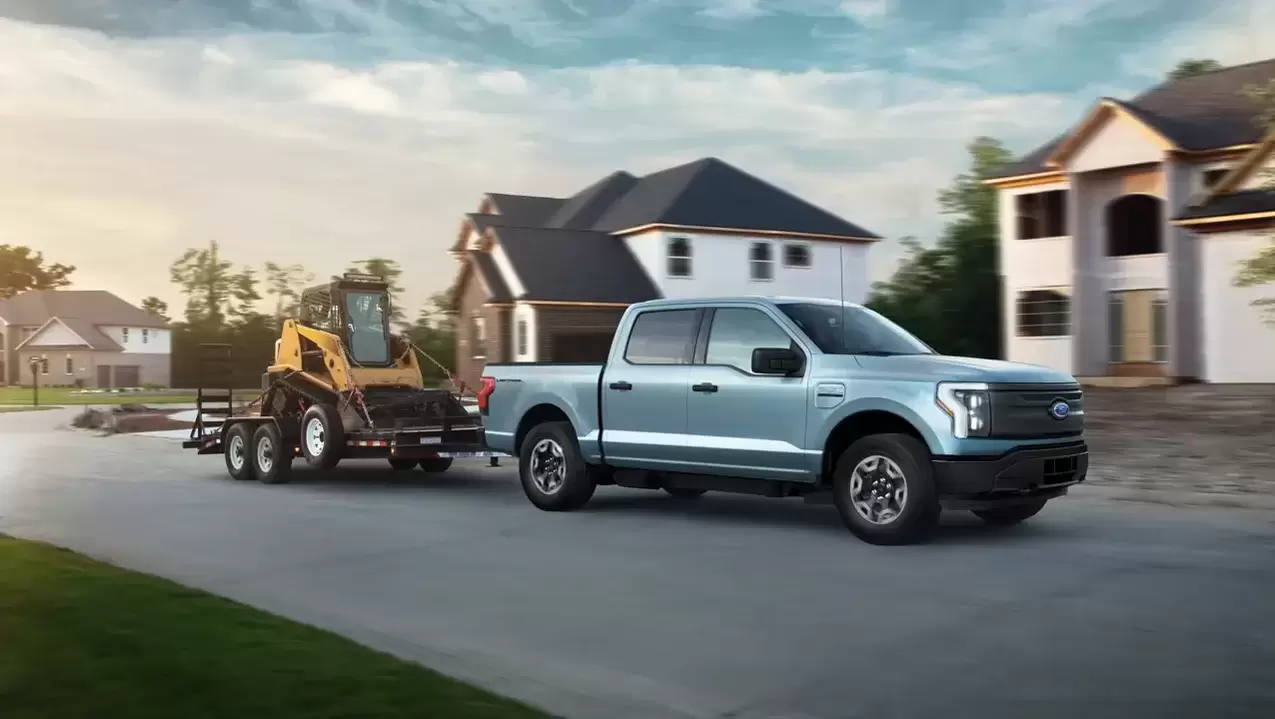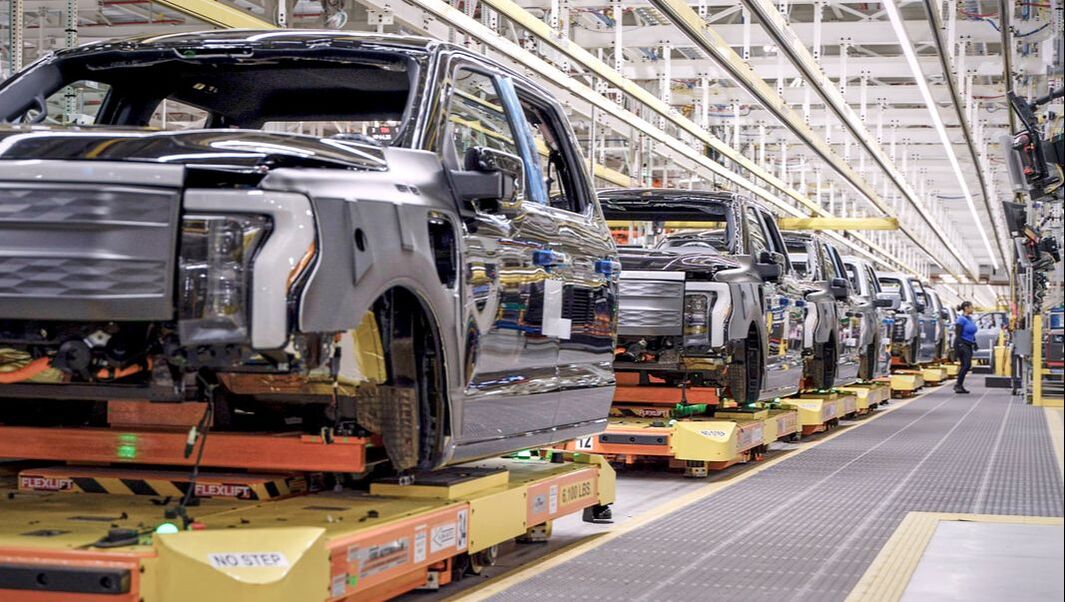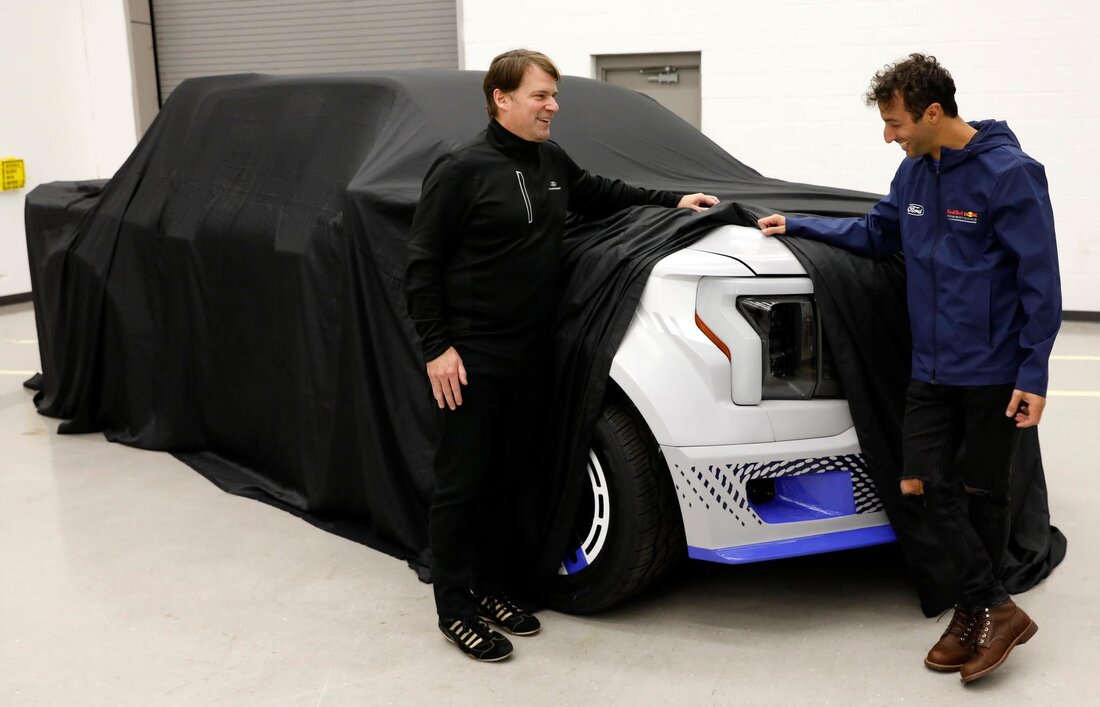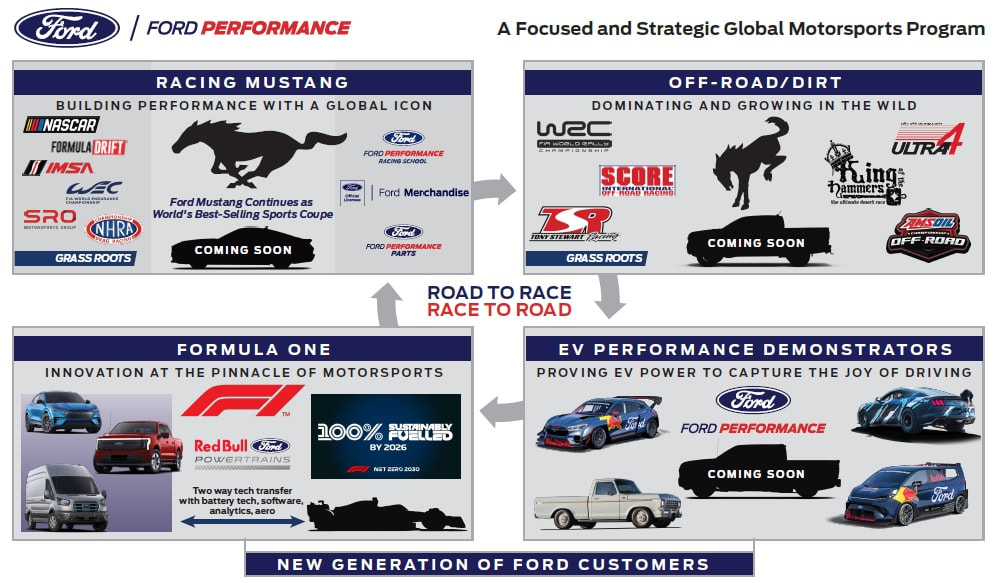|
Ford Raises Prices on the F-150 Lightning Electric Pickup as Demand Surges Ford Motor Company has announced that it will be increasing prices another time for its popular all-electric F-150 Lightning pickup. This move is the latest in a series of price adjustments aimed at mitigating the impact of elevated supply and production expenses. The base price of the F-150 Lightning is now $4,000 more, bringing the entry-level price to $59,974. With this latest price increase, the price has increased almost 50% over when it debuted in 2022.
"Ahead of the next wave of commercial order banks opening mid-April, Ford is adjusting the price of the F-150 Lightning Pro MSRP from $55,974 to $59,974," Ford said, adding that the model remains sold-out for retail customers. As initially reported by Automotive News, this marks the fourth time that Ford has significantly raised the price of the truck. The price increase not only affects the base F-150 Lightning Pro model but also the Lightning Lariat and Platinum models. The Lariat now has a price tag of $75,974, reflecting a $1,500 increase, while the Platinum's price has risen by $1,200 to $98,074. Additionally, all models are subject to a substantial $1,895 destination charge. Despite the price increases, the F-150 Lightning still remains in high demand. The truck boasts impressive performance, an extensive list of standard features, and a spacious, well-equipped crew cab interior. Ford provides the all-wheel-drive vehicle in various models, accompanied by two battery pack options. The maximum range currently attainable is 320 miles on a single charge. The F-150 Lightning is among the three electric pickup trucks presently available on the market, with more expected to arrive in the upcoming years. According to Ford, the price adjustments were made after evaluating the costs of key components such as batteries, metals, and labor. The automaker also mentioned that it is working on expanding its battery production capabilities to help reduce costs in the long term, which could eventually lead to more affordable electric vehicles. The price hike is not unique to Ford, as other automakers have also been grappling with the rising costs of materials and labor in recent times. The automotive industry has been facing supply chain disruptions and chip shortages that have resulted in increased production costs. As a result, many companies are passing these additional expenses onto consumers in the form of price increases. While this latest price increase may come as a disappointment to some, the F-150 Lightning remains an attractive option in the electric pickup market. As the industry continues to evolve and adapt to the challenges of rising costs, it will be interesting to see how Ford and other automakers navigate these hurdles to maintain their competitiveness and appeal to consumers.
Production and shipping of Ford's F-150 Lightning pickup truck is anticipated to remain halted until at least the end of next week as the company deals with a potential battery issue that led to a vehicle fire on February 4. In an announcement on Wednesday, the automaker revealed its plans to address the problem and ensure customer safety.
Ford has said that its engineers have likely identified the source of the vehicle fire, and investigations into the problem are anticipated to conclude by the end of next week. Following this, the company plans to make changes to the truck's battery production process, which may take a few weeks to implement. As production remains on hold, Ford is reassuring customers that F-150 Lightnings already delivered to dealerships and customers are not affected. "We believe we have identified the root cause of this issue," Ford spokeswoman Emma Bergg told CBS MoneyWatch on Wednesday. "By the end of next week, we expect to conclude our investigation and apply what we learn to the truck's battery production process." The fire, which was initially reported by the Detroit Free Press, took place during a pre-delivery quality inspection in a holding lot. The F-150 Lightning pickup's battery is provided by SK On, a subsidiary of South Korean company SK Innovation. To date, there have been no significant battery problems reported for batteries supplied by SK. Ford does have plans to switch battery chemistries in the F-150 Lightning to a safer lithium iron phosphate (LFP) but those plans are unrelated and were already in the works long before this incident. No additional information has been provided by the company at this time.
Ford is no stranger to building souped-up performance demonstrator vehicles... and the latest F-150 Lightning teaser has the world buzzing...
Ford recently made an announcement of its comeback to Formula 1 racing in partnership with Red Bull Racing in 2026. Along with the announcement, they also shared a graphic (pictured below) showcasing how they believe racing leads to the development of successful products. The graphic contained outlines of several upcoming vehicles, including an electric pickup demonstrator (based on the F-150 Lightning), new Mustang race cars, and the already disclosed Ranger Raptor.
Previous EV performance demonstrator vehicles were the Mustang Cobra Jet 1400 dragstrip special, the 1,400-horsepower, 7-motor Mustang Mach-E 1400 Prototype, the 1,973-hp quad-motor SuperVan 4, and the 1978 F-100 Eluminator pickup. Each as absolutely ridiculous and spectacular as the rest.
The next EV performance demonstrator can now be all but confirmed as CEO Jim Farley took to Twitter to share a photo of himself giving Formula 1 racing driver Daniel Ricciardo a sneak peak at the vehicle.
The details regarding the unveiling of the F-150 Lightning performance demonstrator are uncertain at this time, including the method Ford intends to use for showcasing it, and if influence any changes or additions to the production version F-150 Lightning. If they do release a performance version of the truck, it might have some crazy numbers that go along with it.
One thing is certain though, Ford is serious about performance. |
Details
Categories
All
Archives
June 2024
|
- Home
-
Learn.
-
EV 101
>
- EV Terminology
- What is an EV?
- Pros and Cons
- EV Types
- Are used EVs a good option?
- How much range do you really need?
- Real world range
- Types of charging and charging stations
- How Long Does It Take To Charge
- EV Charging Apps
- All about EV Batteries
- Regenerative Braking
- BEV System Components
- EV Maintenance
- EV Mythbusting >
- Podcast
- Newsletter
- Magazine
- Articles >
- Vehicle Reviews
- Alternative Fueling Station Locator
-
EV 101
>
- Connect.
- Experience.
- Deals
- Shop
- About Us








